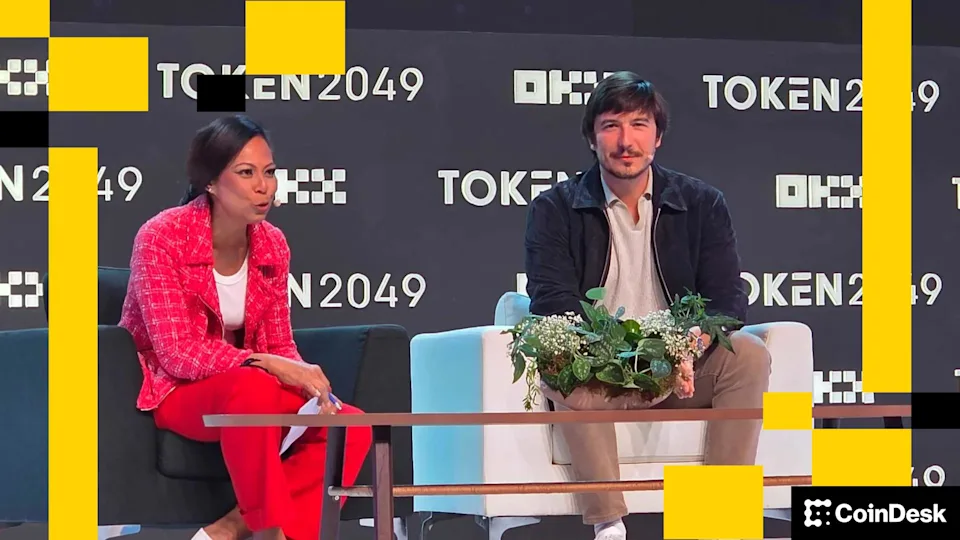At Singapore’s Token2049, Robinhood doubled down on its bet that blockchain will transform stocks, real estate, and beyond.
Robinhood CEO Vlad Tenev says the tokenization of real-world assets (RWAs) — from US equities to real estate — is an unstoppable trend that will eventually “eat the entire financial system.” Speaking at the Token2049 conference in Singapore, Tenev described tokenization as a “freight train” barreling through traditional finance, with most major markets expected to have frameworks in place within the next five years.
“Crypto and traditional finance have been living in separate worlds, but they’ll fully merge. In the future, everything will be on-chain in some form, and the distinction will disappear,” Tenev told the audience.
Robinhood’s Tokenization Push
Robinhood began offering over 200 tokenized US stocks to customers in Europe in June, using Ethereum layer-2 Arbitrum. The platform also introduced tokenized equity in private companies like OpenAI and Tesla, giving investors outside the US 24/7 access to American assets. Tenev said tokenized stocks will become the default way to get exposure to US equities abroad.
Looking ahead, Robinhood plans to expand tokenization into real estate, with Tenev stressing that the process is “mechanically no different” from tokenizing private company shares. He brushed off legal challenges — including OpenAI’s claim that Robinhood’s tokenization of its private equity was unauthorized — as evidence of regulatory lag rather than technical barriers.
Why Europe Leads, and the US Lags
Tenev argued that Europe is ahead of the US on tokenization thanks to its comprehensive Markets in Crypto-Assets (MiCA) framework, while the US risks being the last major economy to fully embrace it. He compared America’s financial system to its lack of high-speed rail:
“The biggest challenge in the U.S. is that the financial system basically works… so the incremental effort to move to fully tokenized will just take longer.”
A $115 Trillion Opportunity
The global tokenization market is still nascent, valued at just $32 billion today, according to rwa.xyz. But Wall Street and Silicon Valley giants are moving in: BlackRock, Franklin Templeton, and Apollo are experimenting with blockchain-based funds, while crypto exchanges like Coinbase and Kraken are rolling out tokenized stock trading.
Tenev believes the potential is massive. The global stock market alone is worth over $115 trillion, and bringing those assets on-chain could multiply efficiency, transparency, and liquidity.
“Eventually, it’s going to eat the entire financial system,” he said. “Stablecoins showed us the first example. Tokenized stocks and real estate are next.”
Robinhood (HOOD) shares have been on a tear, climbing more than 27% in September after being added to the S&P 500. The company now holds over $300 billion in customer assets under custody and is rapidly expanding beyond brokerage into banking and tokenized finance.
Investors see tokenization as both a regulatory challenge and a revenue opportunity. Analysts say Robinhood’s first-mover push could reshape global investing — but warn that the US market may take a decade or more to fully catch up.
Disclosure: This article does not represent investment advice. The content and materials featured on this page are for educational purposes only.
Related:
Trump’s $100,000 H-1B Visa Fee: What It Means for Tech, Talent, and Markets
Fed Divide Widens as Policymakers Clash Over Pace of Rate Cut










